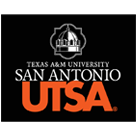Document Types
Individual Presentation
Start Date
2-24-2024 3:00 PM
End Date
2-24-2024 3:20 PM
Track
Culture and Pedagogy
Abstract
The purpose of this presentation is to reflect on some of the perspectives, beliefs and policies that lie behind the definition, understanding and framework of ‘success’ (Beaudrie, 2020) according to the Spanish Heritage Language (SHL) programs, and the design on which these programs rely to develop their curricular foundation for the upcoming generation of heritage learners.
How ‘success’ materializes depends on what is the specific profile of Heritage Language Speaker (HLS) used as reference according to each SHL program’s perspective (Carreira, 2012). The larger vision upheld on what is the SHL Education specific purpose, deeply influences the theories and perspectives used to inform the language programs’ curricula and practices believed to better suit the heritage language speakers’ needs in their path to success. However, the main questions remained unanswered: (RQ1) To what extent do SHL programs’ definition of ‘success’ aligns with the genuine sociolinguistic needs of the Gen Z Heritage Learners (HL)? and (RQ2) how could current education policies and curricular goals be reframed to provide affordances for a more community-engaged, sociolinguistically-informed, and critically aware learning ecology to emerge?
In this presentation we will: i) discuss the need for heritage language programs and their pedagogies as a institutionalize, yet distinct strand of the language programs in the post-secondary institutions; ii) analyze what is the definition of heritage language learners that better encompass the shared traits of this type of learners; iii) assess the validity, or not, of the numerous definitions of ‘success’ that lay behind the design of the Spanish Heritage Programs, and propose an improved education policy framework that better supports the holistic development of the heritage learner's cultural capital (Yossa, 2005), their educators, and their ascribed community, amidst a historical paradigm shift of a declining share of Latinos who speak Spanish (Pew Research Center, 2021)
Keywords: Spanish heritage language, program administration, gen Z, cultural capital, holistic development, community-engaged pedagogy, success, critical language awareness.
Recommended Citation
Acero Ayuda, Alejandro, "The Gen Z Heritage Learner: Redefining the SHL Program for a post-pandemic generation" (2024). 11th National Symposium on Spanish as a Heritage Language. 24.
https://digitalcommons.tamusa.edu/heritage_spanish/SCHEDULE/Saturday/24
Included in
Bilingual, Multilingual, and Multicultural Education Commons, Curriculum and Instruction Commons, Curriculum and Social Inquiry Commons, Digital Humanities Commons, Educational Leadership Commons, Holistic Education Commons, Latin American Languages and Societies Commons, Spanish Linguistics Commons, Teacher Education and Professional Development Commons, Urban Education Commons
The Gen Z Heritage Learner: Redefining the SHL Program for a post-pandemic generation
The purpose of this presentation is to reflect on some of the perspectives, beliefs and policies that lie behind the definition, understanding and framework of ‘success’ (Beaudrie, 2020) according to the Spanish Heritage Language (SHL) programs, and the design on which these programs rely to develop their curricular foundation for the upcoming generation of heritage learners.
How ‘success’ materializes depends on what is the specific profile of Heritage Language Speaker (HLS) used as reference according to each SHL program’s perspective (Carreira, 2012). The larger vision upheld on what is the SHL Education specific purpose, deeply influences the theories and perspectives used to inform the language programs’ curricula and practices believed to better suit the heritage language speakers’ needs in their path to success. However, the main questions remained unanswered: (RQ1) To what extent do SHL programs’ definition of ‘success’ aligns with the genuine sociolinguistic needs of the Gen Z Heritage Learners (HL)? and (RQ2) how could current education policies and curricular goals be reframed to provide affordances for a more community-engaged, sociolinguistically-informed, and critically aware learning ecology to emerge?
In this presentation we will: i) discuss the need for heritage language programs and their pedagogies as a institutionalize, yet distinct strand of the language programs in the post-secondary institutions; ii) analyze what is the definition of heritage language learners that better encompass the shared traits of this type of learners; iii) assess the validity, or not, of the numerous definitions of ‘success’ that lay behind the design of the Spanish Heritage Programs, and propose an improved education policy framework that better supports the holistic development of the heritage learner's cultural capital (Yossa, 2005), their educators, and their ascribed community, amidst a historical paradigm shift of a declining share of Latinos who speak Spanish (Pew Research Center, 2021)
Keywords: Spanish heritage language, program administration, gen Z, cultural capital, holistic development, community-engaged pedagogy, success, critical language awareness.

